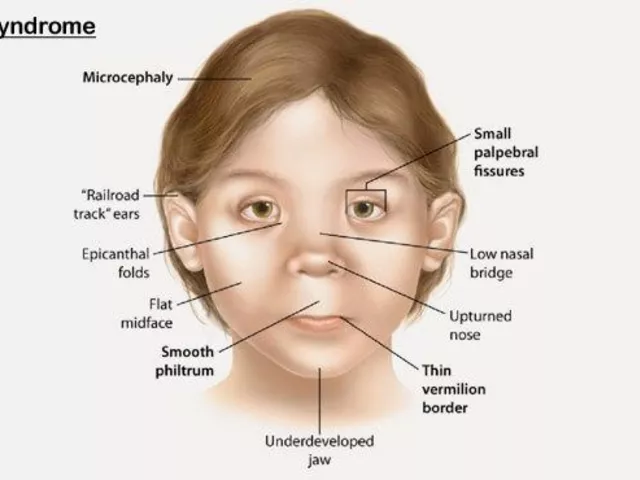Parenting and Family: Practical Advice for Modern Parents
Raising kids and building a family brings questions that need clear answers. Whether you’re planning a family, managing pregnancy health, or handling common issues like bed-wetting, this page gathers practical, real-world guidance you can use today.
If you’re part of the LGBT community and want to grow your family, start with the legal and medical basics. Picking donors and a surrogate matters for health and for future parental rights. Our guide 'LGBT Family Planning Guide: Key Steps to Choosing Donors, Surrogates, and Legal Support' walks through questions to ask clinics, how to compare donor profiles, what surrogacy contracts usually cover, and when to get a lawyer. Tip: collect paperwork early—birth certificates and court orders are easier to get before problems arise.
Pregnancy often brings questions about medications. If you or a partner take antidepressants, you may worry about effects on the baby. Read 'Escitalopram and Pregnancy: What You Need to Know' for plain facts about risks and benefits, and how doctors weigh them. A useful rule: never stop medication suddenly. Talk with your prenatal care team about dose adjustments, monitoring, and non-drug options like therapy.
Bed-wetting is common and handled very differently around the world. Our piece 'Bed-wetting and cultural differences: How various societies approach the issue' shows what parents in different cultures try, which methods are backed by pediatricians, and when to seek help. Simple steps that help include a bathroom routine before bed, limiting evening drinks, and using alarms for older kids. If wetting continues past the expected age, see a doctor to rule out medical causes.
Here are quick, practical actions you can take now:
Make a list of legal and medical questions before meeting a fertility clinic. Keep copies of every document you sign.
If you take medication during pregnancy, set an appointment with your prescriber to review risks and alternatives. Bring notes about symptoms and history.
For bed-wetting, track wet nights for two weeks before changing strategies. That record helps your pediatrician spot patterns.
We keep posts short, specific, and linked to deeper guides. Each article includes checklists, sample questions to ask professionals, and steps you can follow this week. Want targeted help? Browse the guides listed below and click to read the full article that fits your situation.
If you're unsure where to start, try this: pick one small step this week. For family planning, call one clinic or draft a list of questions to email a lawyer. If pregnancy meds worry you, schedule a 20-minute review with your doctor and bring a list of symptoms and current doses. For bed-wetting, keep the two-week log and try a consistent bedtime routine before changing treatments. Track progress and be patient—change takes time. When you read an article here, use the checklists and printable notes to make appointments easier. If something feels urgent or a child shows pain, fever, or sudden behavior change, contact a healthcare provider immediately.
Explore articles, save resources, and reach out when needed today.

LGBT Family Planning Guide: Key Steps to Choosing Donors, Surrogates, and Legal Support
This deep-dive explores LGBT family planning, from the nuts and bolts of picking egg or sperm donors, and navigating surrogacy contracts, to untangling tricky legal details depending on where you live. It covers practical advice, useful real-life tips, and vital questions to ask every step of the way. Readers get a clear look at how to build a family on their terms. Expect concrete examples, current facts, and guidance tailored for LGBT parents. The guide links directly to an even more comprehensive resource for those craving step-by-step breakdowns.

Escitalopram and Pregnancy: What You Need to Know
As a blogger, I feel it's essential to discuss the topic of Escitalopram and pregnancy. Many women have concerns about the safety of taking this antidepressant while pregnant. From my research, it appears that the risk of birth defects is low, but there may be some potential risks to the baby. It's crucial for expectant mothers to consult with their healthcare provider to weigh the benefits and risks before making a decision. Remember, it's all about finding the best balance for both mom and baby's well-being.

Bed-wetting and cultural differences: How various societies approach the issue
As a blogger, I've recently delved into the topic of bed-wetting and how different cultures approach this issue. It's fascinating to see how various societies around the world handle such a common problem. Some cultures view bed-wetting as a natural part of a child's development, while others may consider it a cause for concern or shame. In some cases, traditional remedies and practices are used to address the issue, while in others, modern medical interventions are sought. Overall, the approach to bed-wetting varies greatly across cultures, highlighting the importance of understanding and respecting these differences.
Categories
- Medications (70)
- Health and Medicine (60)
- Health and Wellness (36)
- Online Pharmacy Guides (16)
- Nutrition and Supplements (8)
- Parenting and Family (3)
- Environment and Conservation (2)
- healthcare (2)
- prescription savings (1)



